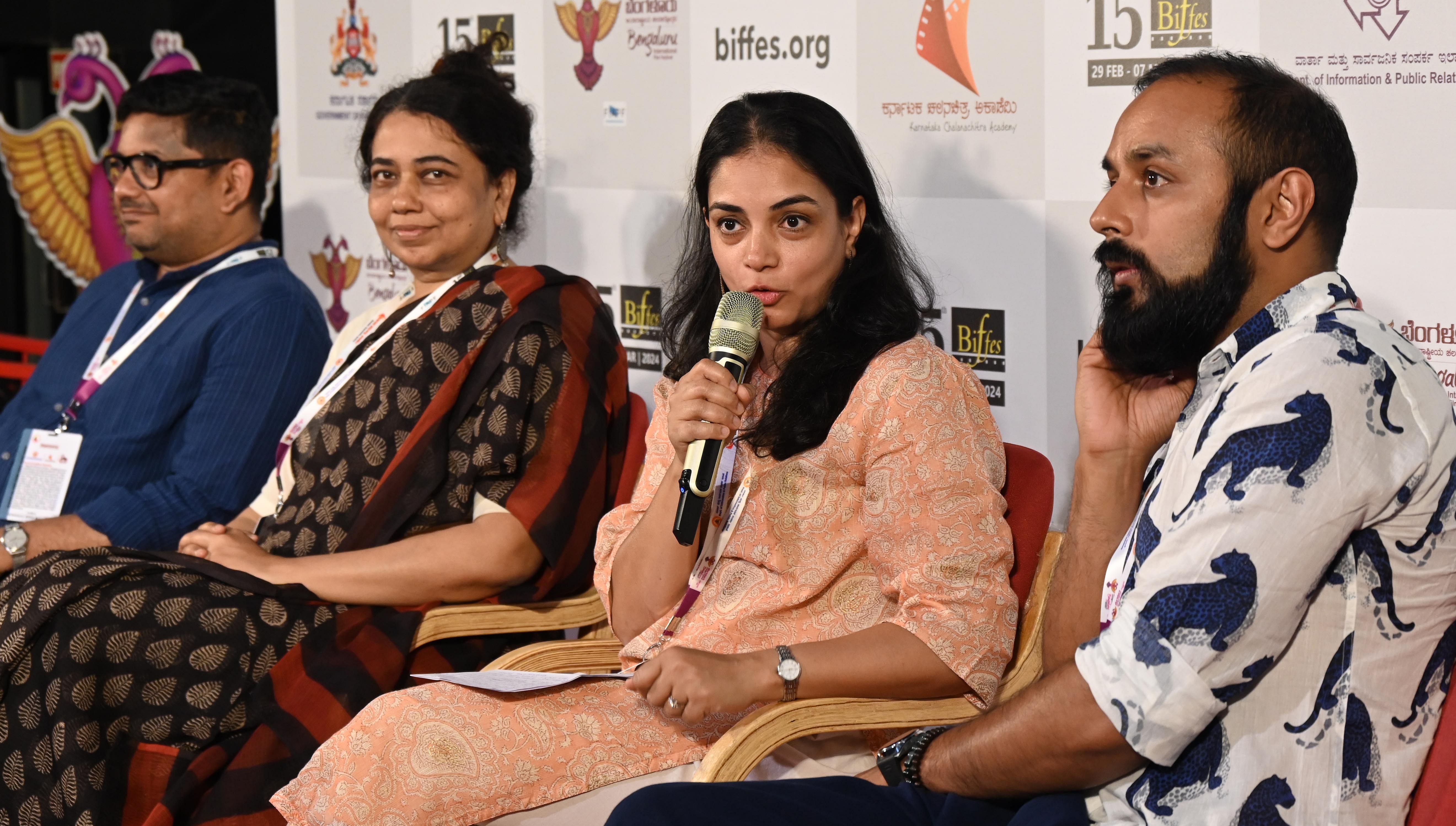
Documentary filmmakers Anirban Dutta, Anupama Srinivasan and Sandhya Kumar (moderator) participate in a panel discussion on ‘The Documentary Cinema in Contemporary Times’ at the Bengaluru International Film Festival in Bengaluru on Wednesday.
DH Photo/B K Janardhan
Documentary filmmaker Anirban Dutta said on Wednesday that documentary films should be preserved since they mirror society and chronicle a nation’s history.
He was speaking in a discussion on ‘The Documentary Cinema in Contemporary Times’ on Day 6 of the Bengaluru International Film Festival (BIFFes).
Acclaimed documentary filmmakers Anupama Srinivasan and Sushmit Ghosh took part in the discussion moderated by Sandhya Kumar.
The discussion revolved around the change in the documentary scene in India and the challenges of documentary filmmakers.
Dutta, who made the documentaries ‘Flickering Lights’ and ‘Nocturnal’ along with Anupama, said the crucial separating factor between two documentaries with similar themes is the ‘gaze’, which is based on the director’s worldview.
There was consensus among the panellists that documentaries funded by the Public Service Broadcasting Trust (PSBT) had limited their horizons and that taking their films to international platforms, like Doc Edge and Tokyo Docs, increased their scope.
They also narrated how documentary filmmaking was not a very easy career choice, adding that they all do commission work and college teaching to make ends meet.
Answering a question from Sandhya on what separates his documentary ‘Writing With Fire’ from others, Ghosh said the exposure to platforms, like Doc Edge, had helped documentary filmmakers to rub shoulders with the best technicians in the world, bolstering the overall quality of their films.
To a question from the audience on how documentaries can reach the common public, Sandhya said a few earlier documentaries were telecast on Doordarshan and recalled that her three documentaries were telecast on NDTV.
Anupama said documentary filmmaking is the most exciting space in films since there is a lot more to be done. Passion is the key to success in the field, she added.
The other session of the day was on ‘Film Production Development,
Festival, Marketing and International Co-production Opportunities for Indian Filmmakers.’
Director Cary Rajinder Sawhney participated in the session moderated by N Vidyashankar, the artistic director of the festival.
Sawhney described how the success of the blockbuster ‘RRR’ and the critically acclaimed ‘Lunch Box’ had kindled an urge among Western critics to understand Indian cinema, thereby also helping cultural crossover.
With the festival entering its last leg, boisterous audiences queued up to watch their favourite films.
Japanese film ‘Monster’ saw one of the festival’s most massive queues and ‘Monk and the Gun’ received positive views from movie buffs.